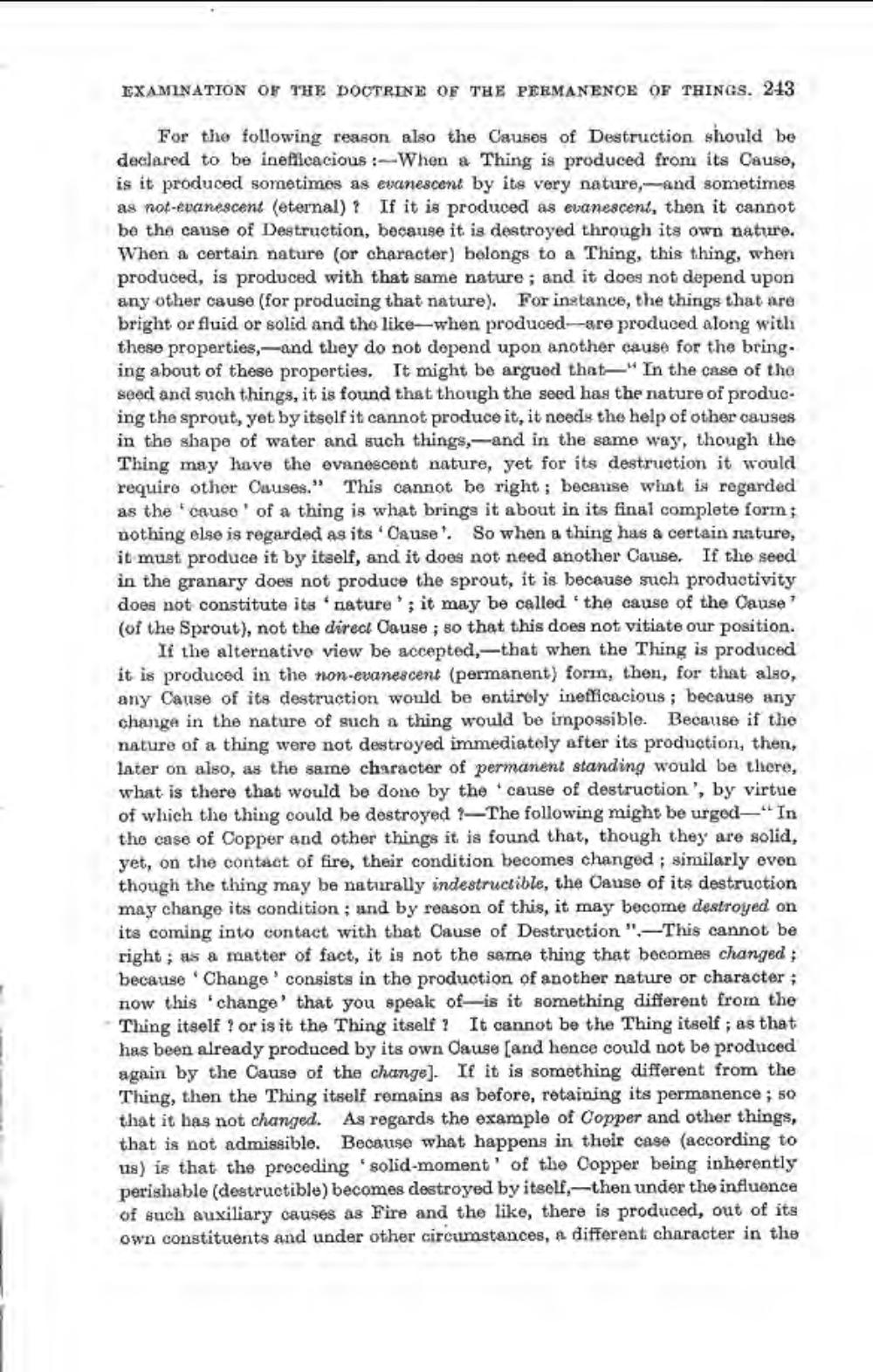________________
EXAMINATION OF THE DOCTRINE OF THE PERMANENCE OF THINGS. 213
For the following reason also the Causes of Destruction should be declared to be inefficacious :- When a Thing is produced from its Cause, is it produced sometimes as evanescent by its very nature,--and sometimes as not-evanescent (eternal)? If it is produced as evanescent, then it cannot be the cause of Destruction, because it is destroyed through its own nature. When a certain nature (or character) belongs to a Thing, this thing, when produced, is produced with that same nature ; and it does not depend upon any other cause (for producing that nature). For instance, the things that are bright or fluid or solid and the like-when producedere produced along with these properties, and they do not depend upon another cause for the bring. ing about of these properties. It might be argued that In the case of the seed and such things, it is found that though the seed has the nature of producing the sprout, yet by itself it cannot produce it, it needs the help of other causes in the shape of water and such things, and in the same way, though the Thing may have the evanescent nature, yet for its destruction it would require other Causes." This cannot be right; because what is regarded as the cause of a thing is what brings it about in its final complete form; nothing else is regarded as its 'Cause'. So when a thing has a certain nature, it must produce it by itself, and it does not need another Cause. If the seed in the granary does not produce the sprout, it is because such productivity does not constitute its nature'; it may be called 'the cause of the Cause' (of the Sprout), not the direct Cause ; so that this does not vitiate our position.
If the alternative view be accepted that when the Thing is produced it is produced in the non-evanescent (permanent) form, then, for that also, any Cause of its destruction would be entirely inefficacious; because any change in the nature of such a thing would be impossible. Because if the nature of a thing were not destroyed immediately after its production, then, later on also, as the same character of permanent standing would be there, what is there that would be done by the cause of destruction', by virtue of which the thing could be destroyed 1-The following might be urged—“In the case of Copper and other things it is found that, though they are solid, yet, on the contact of fire, their condition becomes changed; similarly even though the thing may be naturally indestructible, the Cause of its destruction may change its condition, and by reason of this, it may become destroyed on its coming into contact with that Cause of Destruction " -This cannot be right; as a matter of fact, it is not the same thing that becomes changed; because 'Change' consists in the production of another nature or character; now this change that you speak of—is it something different from the Thing itself ? or is it the Thing itself ? It cannot be the Thing itself; as that has been already produced by its own Cause (and hence could not be produced again by the Cause of the change]. If it is something different from the Thing, then the Thing itself remains as before, retaining its permanence; 50 that it has not changed. As regards the example of Copper and other things, that is not admissible. Because what happens in their case (according to us) is that the preceding solid-moment' of the Copper being inherently perishable (destructible) becomes destroyed by itself, then under the influence of such auxiliary causes as Fire and the like, there is produced, out of its own constituents and under other circumstances, a different character in the




